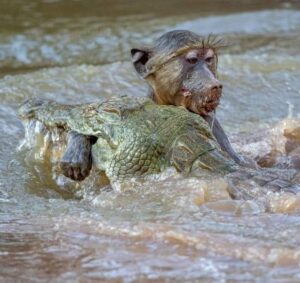“How to Feed a Baby Monkey: Step-by-Step Guide”
- Start with the Right Milk Formula: Use a specialized primate milk replacer or consult a vet for safe alternatives.
- Prepare Feeding Equipment: Sterilize bottles and nipples to ensure cleanliness.
- Warm the Milk: Heat the milk to body temperature, similar to how you’d prepare it for a human baby.
- Position the Baby Monkey Properly: Hold the baby upright to mimic its natural feeding position.
- Feed Gradually: Gently squeeze the bottle to release milk and monitor its intake.
- Burp After Feeding: Help the monkey burp by gently patting its back.
- Introduce Soft Foods: After a few weeks, introduce mashed fruits and soft vegetables.
- Maintain a Feeding Schedule: Feed every 2-4 hours for young monkeys, gradually reducing frequency as they grow.
- Hydration is Key: Offer fresh water to keep the monkey hydrated.
- Consult a Vet Regularly: Ensure the monkey’s diet supports its health and development.
This step-by-step guide ensures your baby monkey thrives while keeping things simple and effective.
How to Buy a Baby Monkey: Essential Steps and Considerations”
- Research Legal Requirements: Check your local laws to ensure owning a monkey is legal in your area. Some regions have strict regulations or require special permits.
- Understand the Responsibility: Monkeys are not traditional pets. They require constant care, proper nutrition, and social interaction.
- Locate a Reputable Breeder or Rescue: Look for licensed breeders or animal rescues that prioritize ethical practices and the monkey’s welfare. Avoid illegal or black-market sellers.
- Ask for Health Records: Ensure the monkey has been examined by a vet, vaccinated, and comes with a clean bill of health.
- Prepare the Environment: Set up a secure, enriched space with toys, climbing structures, and a safe sleeping area.
- Learn Proper Care Techniques: Educate yourself on feeding, grooming, and bonding with the monkey.
- Budget for Long-Term Costs: Monkeys can live for decades. Be prepared for expenses like food, medical care, and environmental enrichment.
- Build a Relationship with a Veterinarian: Find an exotic animal vet for regular checkups and emergencies.
- Ensure Socialization: Monkeys are social animals and need interaction to thrive. Be prepared to spend significant time with them daily.
- Think Long-Term: Monkeys are a lifelong commitment. Be sure you’re ready for the challenges and rewards.
Owning a baby monkey is a serious responsibility. Make sure it’s the right decision for you and the monkey’s well-being.
Let me know if you’d like more tips or further customization!








